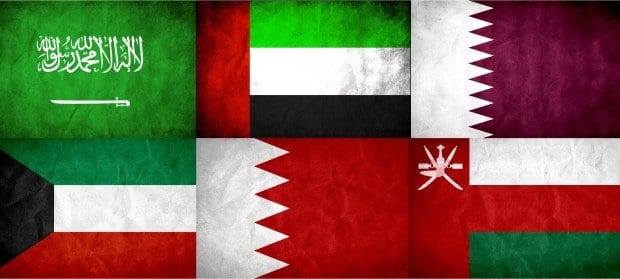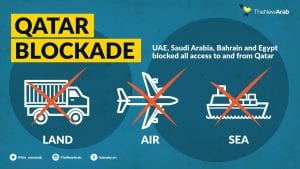

To tell you the truth, there are is a mix of views about the logistics industry pertaining to the Middle East as you will note here in our newsletter. Nevertheless, the region still needs to meet international standards & regulations for the logistical industry. Feel free to browse the given links to explore and evaluate the circumstance yourself. Here is my research on this topic.
Allow me to start with an introduction to the Gulf Cooperation Council or GCC in short. The GCC comprises of six Middle Eastern countries, namely Bahrain, Kuwait, Oman, Qatar, Saudi Arabia, and the United Arab Emirates, forming a political and economic union of the Arab states.
The GCC countries are the Oil & Gas centers of the world, with a combined population of over 50 million people and with a combined GDP of almost $3.464 trillion. Oil & gas exports, substantial government finances, and continued public spending on infrastructural projects have been their primary support of economic growth.
Their economic reform and expansion programs continue with a focus on attracting domestic, regional, and foreign private sector investments that include power generation, telecommunications, and real estate sectors — of course, not forgetting the Middle East’s primary business and their stronghold on the Oil & Gas industry.
Looking at this from a logistical point of view, the Middle East is increasingly becoming an integrated economic entity with consistent growth initiatives from each member nation towards minimizing its political and geographic boundaries. You can merely imagine the GCC growth with projects & activities such as the Masdar City in UAE, FIFA world cup in Qatar and Kuwait’s Silk City project. Also, some of the world’s best-ranked airlines belong to the region – Emirates, Etihad & Qatar Airways.
The question arises, how does logistics play a role in enabling growth in the Middle Eastern countries? With the continuous economic growth in the GCC, logistics has become a vast industry for the GCC.
The leading contributors to the logistical requirements arise from the oil & gas, infrastructure, trading, and retail industries. In 2017 the Middle Eastern third-party logistics market generated revenue to the value of 42.2 billion US dollars. An estimated 5% of the GCC GDP consists of their logistical needs, which while it is expected to grow every year.
I am sure that you must be thinking who the primary logistics players are in the region? Well, local companies dominate inland logistics such as transportation & warehousing. The international logistical needs, whether it be through air freight or ocean freight, are compromised by multinational countries.
 It is necessary to mention the embargo in Qatar. In 2017, as led by Saudi Arabia, the UAE and other MENA region countries had imposed a trade embargo on Qatar ceasing their usage of the region’s airspace, seaports, and land borders. In the latter of 2018, Qatar chose to end its 60-year-old membership in the OPEC. Everyone expected that the tiny emirate might collapse, but Qatar bounced back with a thriving economy due to their diversification strategy and realignment to their trade mix. Qatar has increased trade with Turkey and efforts to boost ties with Iraq since the embargo.
It is necessary to mention the embargo in Qatar. In 2017, as led by Saudi Arabia, the UAE and other MENA region countries had imposed a trade embargo on Qatar ceasing their usage of the region’s airspace, seaports, and land borders. In the latter of 2018, Qatar chose to end its 60-year-old membership in the OPEC. Everyone expected that the tiny emirate might collapse, but Qatar bounced back with a thriving economy due to their diversification strategy and realignment to their trade mix. Qatar has increased trade with Turkey and efforts to boost ties with Iraq since the embargo.
My question to you is, do you export/import from the Middle East? What percentage of your business is from the GCC countries? How satisfied have you been with their logistics business? What are your suggestions for improvement for their industry? And finally, what do you view as their strength in this industry?
Links & References:
